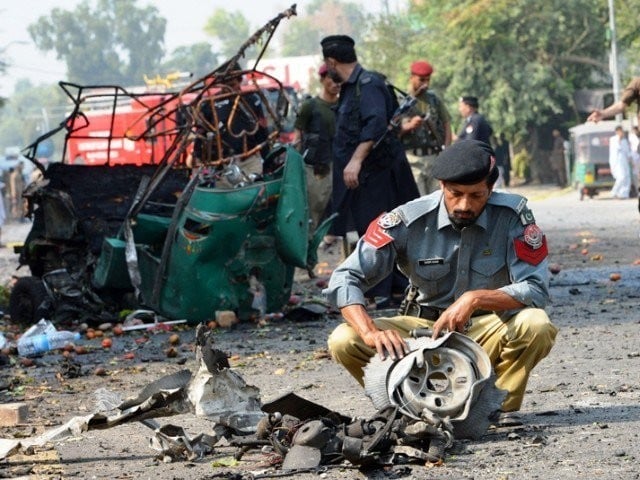
The philosophy ¬ the mission statement and the words ¬ that can defeat the ideological assertions of terrorists is nowhere in sight.
Like every other government job, thinking up a national narrative to undo glorification of terrorism, has suffered red-tape delays.
The national narrative which was supposed to be drafted by the Ministry of Interior and National Counter Terrorism Authority (NACTA) jointly after adoption of National Action Plan (NAP) was still ‘at initial stage’ for which ‘stakeholders are being identified’ despite lapse of many months, sources in relevant authorities told The Express Tribune.
The basic aim of the draft was to counter the glorification of terrorism for which authorities concerned were consulting stakeholders like politicians, think-tanks, scholars and others to take their input on the matter, sources added.
However, analysts feel there was lack of seriousness on part of the relevant authorities for drafting the national narrative.
Khalid Muhammad, Director General of CommandEleven, a firm which is focused on counter terrorism and counter insurgencies told this scribe that authorities concerned are not taking up the issue with seriousness it requires.
He said everyone right from the prime minister to a layman talk about developing a narrative which could unite the Pakistani nation but practically nothing was being done for this cause.
He said the anti-terror narrative was supposed to be based on three main points - religious perception, Pakistani culture and community ownership. “Taking the religious scholars on board on this issue and requesting them to prepare religious perspective against terrorism should be at the top of the strategy to tackle terrorism in the country,” the counter-terrorism expert said.
“Terrorists don’t want people to understand true meaning of religious perspective of the things on which they have built their own description. There are learned scholars in Pakistan who can explain what is right and wrong and people would believe them,” he said.
Khalid Rahman of Institute of Policy Studies (IPS) said that in today’s world wars are fought on narrative.
“If one’s narrative is weak or confused, the narrative of enemy would be decisive. Whatever national narrative the government wants to develop should be built with consensus of all stakeholders otherwise it would not be national narrative but that of government,” he commented.
He said building narrative has multiple aspects and an on-going process which keeps evolving all the time.
In Pakistan two narratives were very successfully adopted and one of which was developing consensus on Kashmir issue and other one was at nuclear programme, Rahman said.
However, according to him, building a narrative on terrorism was a very complicated issue. “US and its allies attacked Iraq and Afghanistan under the international narrative and destabilised the whole region,” he said.
Rahman said if the government starts towing this international narrative to tackle internal issues, it would enhance polarisation and create gulf between the people’s aspiration and the government.
Published in The Express Tribune, March 20th, 2016.


1737550160-0/BeFunky-collage-(21)1737550160-0-165x106.webp)

1719319701-0/BeFunky-collage-(10)1719319701-0-165x106.webp)



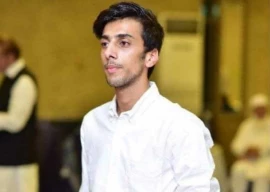



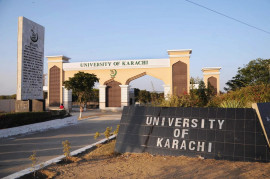
1737452260-0/Gaddafi-stadium-(2)1737452260-0-270x192.webp)

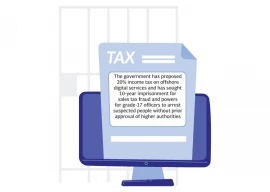
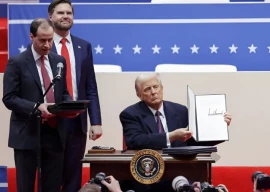
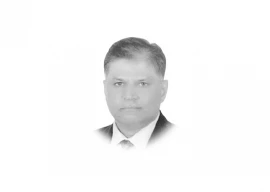





COMMENTS
Comments are moderated and generally will be posted if they are on-topic and not abusive.
For more information, please see our Comments FAQ